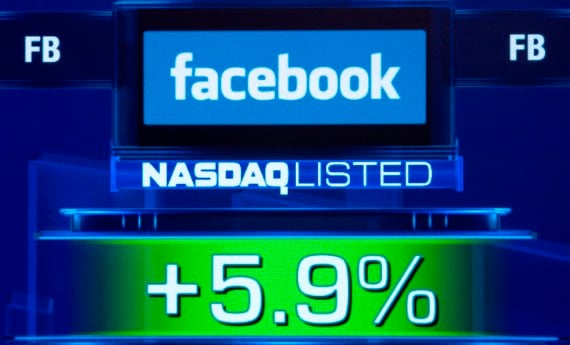Social-networking giant accounted for huge chunk of trading volume on nonpublic exchanges
The “fortunate” few who got allocations in the Facebook offering aren't the only ones suffering after the social-media network's dismal debut as a public company on Friday.
Exchanges such as SecondMarket Holdings Inc, which trade shares in private companies, have lost their biggest selling point for institutional and accredited investors interested in hot companies before they go public.
“There's going to be a major dip in activity at the private markets because the 800-pound gorilla is gone,” said Tim Keating, president of Keating Investments LLC. Mr. Keating invests in pre-IPO companies, though he did not purchase any pre-IPO Facebook shares.
Trading in Facebook shares accounted for more than 50% of the volume in private-share trading last year at SecondMarket, according to Boyd Steinhoff, vice president of the Private Company Market division of SecondMarket. The exchange has expanded into the trading of other illiquid assets, such as mortgage-backed securities, auction-rate securities, bankruptcy claims and even items such as wine and art. But the loss of Facebook will hurt. “It was a significant part of our business,” said Mr. Steinhoff.
The loss of Facebook transactions may be even tougher on other private venues such as SharesPost and the Private Share Group of Wedbush Securities. “There isn't room for eight or nine of these venues," Mr. Keating said. "I think the stronger ones will survive."
Cyrus Pirasteh, managing director of the Private Shares Group at Wedbush, said "it's sad to see shares with so much volume leave to go public. But we have a lot of client interest in other private securities."
Jeremiah Hall, spokesman for SharesPost, said "a majority" of the $183 million in private share transactions from the first quarter were in Facebook. But he said the upside of Facebook's IPO is the added attention it brought to the market for private shares. "Facebook was important for us but we're growing our business," he added.
Indeed, Mr. Steinhoff, however, is confident that the attention Facebook brought to the private share trading market will result in further interest from the investment community and from private companies looking to provide liquidity to early shareholders.
Indeed, the average length of time it takes private companies to go public has nearly doubled, from about five years in the 1990s to nearly 10 years today, according to Mr. Steinhoff.
The compliance hoops and hurdles of the Sarbanes-Oxley Act for public companies has been one reason. The JOBS Act passed in early April has addressed many of those obstacles, possibly encouraging companies to take the plunge into public ownership sooner. On the other hand, the legislation also increased the number of shareholders that a private business can have without requiring SEC registration. The previous limit was 500; it's now 2000--a change that would allow companies to stay private longer, Mr. Steinhoff said.
“Facebook was a catalyst of interest in the rest of our pipeline of private companies,” he said. “No one company will contribute the volume that Facebook did, but because it was successful staying private for so long, I think other companies may do the same thing.”
If long periods of trading on private markets lead to IPOs like Facebook's, however, investors may not be as keen on the idea.







